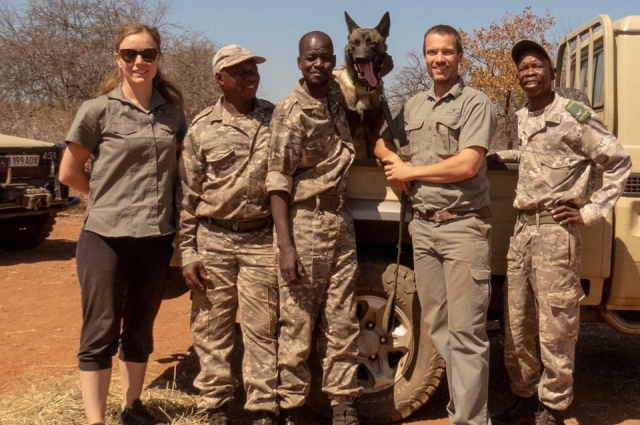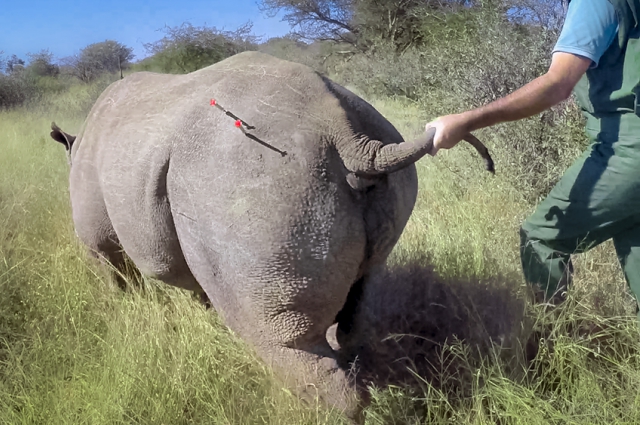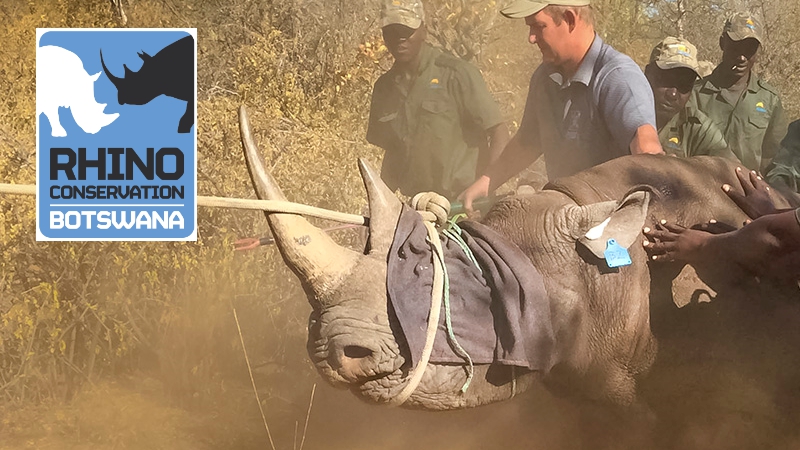Donated: US$ 16,500
In Spring 2017 Sara contacted Map Ives at Rhino Conservation Botswana and introduced the idea of rhino protection dogs to him. The RWCT offered to fund the purchase, stage 1 training, equipment and deployment for a team of two triple role dogs through their Explorers Against Extinction campaign.

US$ 16,500 was raised through our 2017 campaign, allowing for purchase of two pups, Savas and Primaa. These were sourced through the specialist organisation Animals saving Animals who did the basic training of the dogs in the UK.
They were deployed in early 2019 and both dogs are now in country and doing invaluable work in protecting endangered wildlife. Both dogs are skilled trackers but are also trained as attack dogs, capable of immobilizing a suspected poacher until rangers can gt to the scene. They act as a huge deterrent.
Who are Rhino Conservation Botswana?
Rhino Conservation Botswana (RCB) are entrusted by the Botswana government to monitor Botswana’s rhinos and ensure that they remain healthy and strong. They want to build the populations of rhinos living wild in the Okavango Delta until they are of international importance.
They have developed a world-class monitoring system to watch over and protect Botswana’s black and white rhinos after their release, to ensure their wellbeing and future breeding success.
Their highly trained and fully equipped rhino monitoring teams record detailed information about the rhinos on daily patrols. The data gathered helps them to understand the rhinos’ distribution, reproductive performance, mortality and home range use.
They share this valuable information with their partners at the Department of Wildlife and National Parks and other rhino owners and managers. They help them to make the right decisions to ensure optimal population growth, as both black and white rhinos recolonise parts of their former range.

In May 2019 we can celebrate news from RCB – they report 7 baby white rhino calves this year:
” The mothers were all brought to the Okavango from South Africa and Zimbabwe where they were at very high risk of being killed by poachers for their horn. Now they are not only safer, but are reproducing, which is fantastic news for the white rhino species.”



Leave a Reply